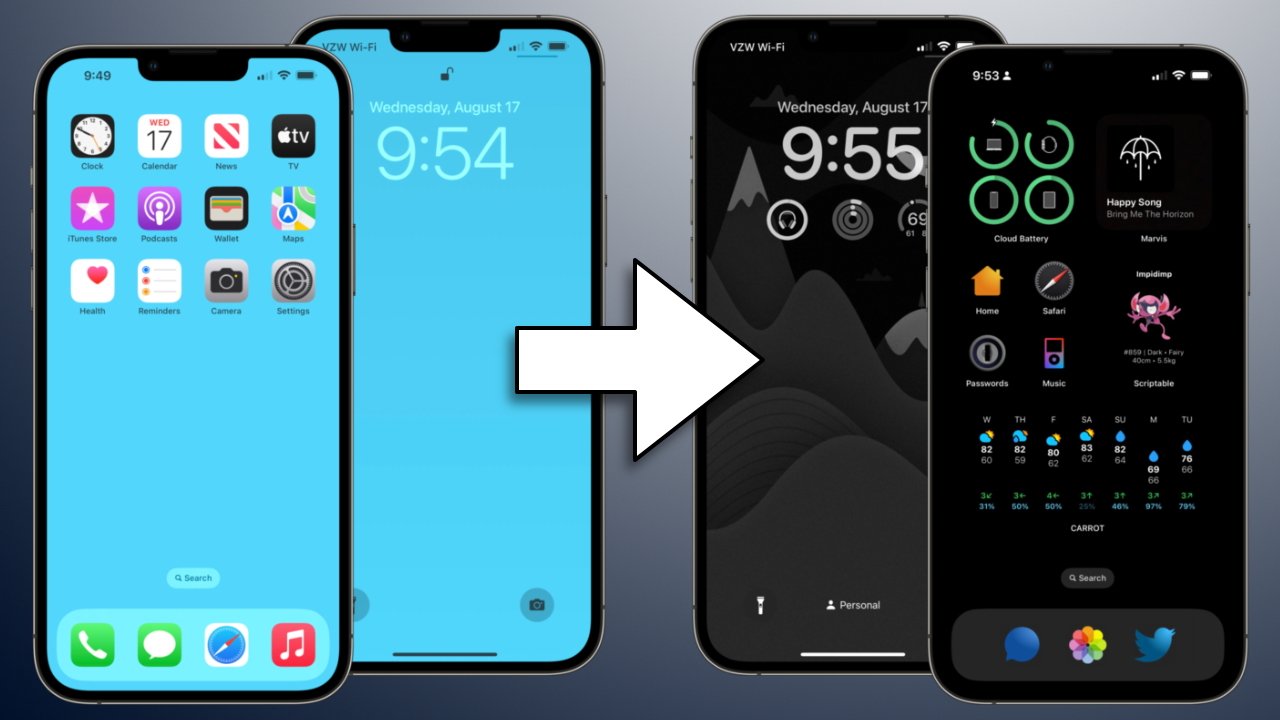In today’s ever-evolving world, the demand for smartphones continues to grow exponentially. But have you ever wondered about the impact this industry has on the environment? In this article, we will explore the concept of driving sustainability in the phone industry and uncover the measures being taken to minimize its ecological footprint. From eco-friendly production methods to responsible recycling practices, discover how phone manufacturers are striving to create a more sustainable future for all.
The Importance of Sustainability
In today’s world, sustainability has become a pressing issue that we cannot afford to ignore. With the growing concern for environmental preservation and ethical practices, it has become crucial for industries to adopt sustainable approaches. The phone industry, being one of the most prominent and rapidly evolving sectors, has a significant role to play in driving sustainability. By focusing on reducing environmental impact, conserving resources, and promoting ethical labor practices, the phone industry can pave the way for a greener and more responsible future.
Reducing Environmental Impact
One of the key aspects of sustainability in the phone industry is reducing its environmental impact. This involves minimizing the carbon footprint of phone production, distribution, and disposal. By adopting energy-efficient manufacturing processes, implementing recycling and waste management systems, and exploring renewable energy sources, phone manufacturers can significantly reduce their environmental footprint. Additionally, designing phones with materials that have minimal environmental impact and using eco-friendly packaging can further contribute to reducing the industry’s overall environmental impact.
Conserving Resources
Conserving resources is another critical pillar of sustainability in the phone industry. With the increasing demand for smartphones around the world, it is crucial to ensure that the extraction and use of resources are done responsibly. Phone manufacturers can achieve this by opting for recycled and recyclable materials in phone production, reducing the reliance on virgin resources. Furthermore, adopting modular design approaches allows for easier component replacements and upgrades, minimizing waste and resource consumption. By conserving resources, the phone industry can make a significant positive impact on the environment.
Promoting Ethical Labor Practices
Ethical labor practices are paramount when it comes to promoting sustainability in the phone industry. This means ensuring fair wages, safe working conditions, and workers’ rights throughout the supply chain. Phone manufacturers should prioritize partnerships with suppliers that adhere to fair labor standards and promote transparency in their operations. By championing ethical labor practices, the phone industry can contribute to improving the livelihoods of workers and supporting social justice.
Sustainable Materials and Design
To achieve sustainability, the phone industry must embrace materials and designs that prioritize environmental responsibility.
Recycled and Recyclable Materials
Using recycled and recyclable materials in phone manufacturing is a significant step towards sustainability. By incorporating recycled plastics, metals, and other components into phone production, manufacturers can reduce their reliance on raw materials and decrease waste. Additionally, designing phones that are easily disassembled and recyclable ensures that valuable materials can be recovered effectively, reducing the environmental impact associated with resource extraction.
Modular Design
Modular design is an innovative approach that allows for the easy disassembly and replacement of phone components. By adopting this design philosophy, manufacturers can extend the lifespan of phones and reduce electronic waste. When a specific component becomes obsolete or fails, instead of replacing the entire phone, users can simply replace the specific module. This not only reduces waste but also promotes a more cost-effective and sustainable way of using phones.
Alternative Power Sources
The phone industry can also contribute to sustainability by exploring alternative power sources. Integrating solar or kinetic energy solutions into phone designs can reduce the reliance on traditional energy sources and decrease the environmental impact associated with phone charging. Additionally, energy-efficient components and power management systems can help prolong battery life and minimize energy consumption, further enhancing the sustainability of phones.

Extended Product Lifecycles
Extending the product lifecycle of phones is vital for reducing waste and conserving resources.
Repairability and Upgradability
Enabling repairability and upgradability in phone designs can significantly prolong the lifecycle of devices. By making components easily accessible and replaceable, manufacturers can facilitate repairs and upgrades, allowing users to continue using their phones instead of discarding them. This approach reduces electronic waste and ensures that valuable resources are not wasted.
Software Updates and Support
Continuing software updates and support for older phone models encourage users to keep their devices for longer periods. By providing regular updates and ensuring compatibility with the latest software versions, manufacturers can extend the usability and lifespan of phones. This reduces electronic waste and allows users to benefit from the latest features and security enhancements without the need for a new device.
Trade-in and Buyback Programs
Implementing trade-in and buyback programs incentivizes users to return their old phones and contribute to a circular economy. By offering fair prices or incentives for returning devices, manufacturers can collect old phones, refurbish them, and resell them as refurbished devices. This not only reduces electronic waste but also allows for the reuse of valuable components, reducing the overall environmental impact of phone production.
Responsible Manufacturing and Supply Chains
Manufacturing and supply chains play a crucial role in driving sustainability in the phone industry.
Reducing Emissions and Waste
Phone manufacturers must strive to reduce both emissions and waste in their manufacturing processes. Implementing energy-efficient technologies, optimizing production processes, and investing in renewable energy sources are steps manufacturers can take to reduce their carbon footprint. Additionally, implementing waste management systems and promoting recycling initiatives within manufacturing facilities can minimize waste and improve overall sustainability.
Fair Trade and Conflict-Free Minerals
Ensuring fair trade and responsible sourcing of minerals is essential for sustainable phone manufacturing. By partnering with suppliers who adhere to fair trade practices and actively avoid conflict minerals, manufacturers can promote ethical practices and contribute to social and environmental responsibility. Dedicating resources to trace the origins of minerals used in phone manufacturing is crucial in avoiding human rights violations and environmental damage.
Transparency and Accountability
Transparency and accountability are crucial for responsible manufacturing. Phone manufacturers should adopt practices that promote transparency throughout the supply chain, ensuring that all stakeholders are aware of the environmental and social impact of their operations. Sharing information about production processes, supplier audits, and environmental certifications exemplifies a commitment to sustainability. By being transparent and holding themselves accountable, phone manufacturers can instill consumer trust and drive positive change in the industry.

E-Waste Management
E-waste management is a significant challenge in the phone industry, but it also presents an opportunity for sustainable practices.
Collection and Recycling Programs
Implementing collection and recycling programs is crucial for proper e-waste management. Phone manufacturers can establish partnerships with recycling organizations or set up drop-off locations where users can safely dispose of their old phones. By providing convenient and accessible avenues for responsible disposal, manufacturers can ensure that electronic waste is properly recycled and minimize the negative environmental impact associated with inappropriate disposal methods.
Circular Economy Initiatives
Adopting circular economy initiatives further enhances sustainability in the phone industry. This involves extending the lifespan of phones through refurbishment, recycling valuable components, and integrating recycled materials into new devices. By embracing a circular economy approach, manufacturers can reduce the reliance on raw materials, conserve resources, and minimize electronic waste.
Educating Consumers
Consumer education is pivotal for successful e-waste management. Phone manufacturers can take an active role in educating consumers about the importance of responsible disposal and recycling. By raising awareness about the environmental impact of electronic waste and providing information on how to dispose of old phones properly, manufacturers can empower consumers to make sustainable choices.
Collaboration and Industry Standards
Collaboration and adherence to industry standards are essential for driving sustainability in the phone industry.
Partnerships with NGOs and Governments
Partnerships with non-governmental organizations (NGOs) and governments can significantly contribute to sustainable practices. By collaborating with NGOs that specialize in environmental conservation or labor rights, phone manufacturers can leverage their expertise and guidance in ensuring sustainability throughout the supply chain. Additionally, governments can play a crucial role by implementing regulations and incentives that promote sustainable manufacturing and operation practices.
Certifications and Labels
Adopting certifications and labels that verify sustainable practices can provide reassurance to consumers. By obtaining certifications such as the Forest Stewardship Council (FSC) or the Responsible Recycling (R2) certification, phone manufacturers can demonstrate their commitment to environmental and social responsibility. These certifications serve as indicators of sustainable practices and help consumers make informed choices when purchasing phones.
Sharing Best Practices
Sharing best practices within the industry is instrumental in driving sustainability. Collaboration between phone manufacturers, suppliers, and industry organizations allows for the exchange of knowledge and the identification of effective sustainability strategies. By working together, industry stakeholders can learn from each other’s successes and failures, accelerating progress towards sustainability goals.

Consumer Awareness and Responsibility
Consumers play a crucial role in driving sustainability in the phone industry through their informed choices and responsible actions.
Choosing Sustainable Brands
Supporting sustainable brands is an effective way for consumers to contribute to sustainability in the phone industry. By researching and selecting phone manufacturers with a strong commitment to environmental and social responsibility, consumers can send a powerful message about their demand for sustainable practices. Factors such as the use of recycled materials, ethical labor practices, and take-back programs should be considered when choosing a phone brand.
Responsible Device Usage
Responsible device usage is essential in prolonging the lifespan of phones. By practicing efficient power management, using energy-saving features, and purchasing devices with a long battery life, consumers can minimize the environmental impact of their phone usage. Additionally, protecting phones with durable cases and screen protectors can prevent damage and extend their usability.
Proper Disposal and Recycling
Proper disposal and recycling of phones are crucial for minimizing electronic waste. Consumers should take advantage of recycling programs offered by phone manufacturers or local recycling centers. When disposing of a phone, it is important to remove personal data and securely clear the device to protect privacy. By responsibly disposing and recycling phones, consumers can contribute to reducing the environmental impact of electronic waste.
Innovation for Sustainability
Continued innovation is fundamental to driving sustainability in the phone industry.
Biodegradable Components
Research and development of biodegradable components can revolutionize phone manufacturing. By exploring materials that can naturally decompose without harming the environment, manufacturers can reduce the long-term environmental impact of phone disposal. Biodegradable components would contribute to a more sustainable and circular approach to phone production.
Energy-Efficient Technologies
The integration of energy-efficient technologies is pivotal in reducing the environmental impact of phones. Manufacturers can prioritize low-power consumption components, optimize software for energy efficiency, and explore new charging technologies to minimize energy consumption during phone usage. By embracing energy-efficient technologies, the industry can reduce greenhouse gas emissions and promote a more sustainable future.
Closed-Loop Manufacturing
Closed-loop manufacturing aims to minimize waste and resource consumption by reusing materials and components. By establishing closed-loop manufacturing processes, phone manufacturers can avoid discarding materials after production and instead recycle or repurpose them for future use. This reduces the reliance on virgin resources and decreases the overall environmental impact of phone manufacturing.

Government Regulations and Incentives
Government regulations and incentives play a vital role in driving sustainability in the phone industry.
Regulating E-Waste and Toxic Substances
Implementing regulations that mandate proper e-waste management and restrict the use of toxic substances is crucial. Governments can establish guidelines for responsible disposal and recycling of electronic waste, ensuring that manufacturers comply with environmentally friendly practices. By setting limits on hazardous materials such as lead and mercury, governments can protect both the environment and the health of phone users and workers.
Offering Tax Incentives
Governments can incentivize sustainable practices in the phone industry by offering tax benefits or subsidies for manufacturers that adopt environmentally friendly approaches. Tax incentives can encourage companies to invest in green technologies, implement sustainable manufacturing processes, and support responsible supply chains. Such incentives promote sustainable growth within the industry and reward manufacturers that prioritize sustainability.
Supporting Green Initiatives
Government support for green initiatives is crucial in driving sustainability in the phone industry. Funding research and development projects focused on sustainable materials, energy-efficient technologies, and responsible manufacturing practices can accelerate progress towards a greener future. By actively supporting green initiatives, governments signal their commitment to sustainability and encourage the phone industry to prioritize environmental responsibility.
The Future of Sustainable Phones
The future of sustainable phones holds great promise, with advancements in various areas.
Advancements in Sustainable Materials
Ongoing research and development efforts are focused on discovering new sustainable materials for phone production. From plant-based plastics to innovative natural fibers, manufacturers are exploring alternatives to traditional materials that have a lower environmental impact. Advancements in sustainable materials will drive the transition towards more ecologically responsible phone manufacturing.
Integration of IoT and AI
The integration of the Internet of Things (IoT) and Artificial Intelligence (AI) in phone design presents opportunities for sustainability. IoT capabilities can enable devices to operate more efficiently, reducing energy consumption. AI can optimize power management and resource usage, prolonging battery life and enhancing overall sustainability. The convergence of IoT and AI holds significant potential for creating smarter and greener phones.
Circular Economy Solutions
The transition towards a circular economy is a key focus for the future of sustainable phones. Manufacturers are exploring innovative ways to practice circularity, such as designing phones with modular components that can be easily upgraded or repaired. Additionally, the development of closed-loop manufacturing systems enables the recycling and reuse of materials, reducing waste and maximizing resource efficiency. Embracing circular economy solutions will further drive sustainability and shape the future of the phone industry.
In conclusion, sustainability in the phone industry is of utmost importance for our planet’s well-being. By reducing environmental impact, conserving resources, promoting ethical labor practices, and embracing innovative solutions, the industry has the power to drive positive change. Through collaboration, responsible manufacturing, consumer awareness, and government support, sustainable practices can become the norm in the phone industry. By prioritizing sustainability, we can pave the way for a greener and more responsible future, where phones serve as tools for connectivity without compromising the environment or jeopardizing social equity.




